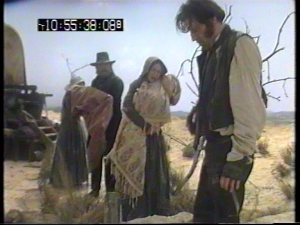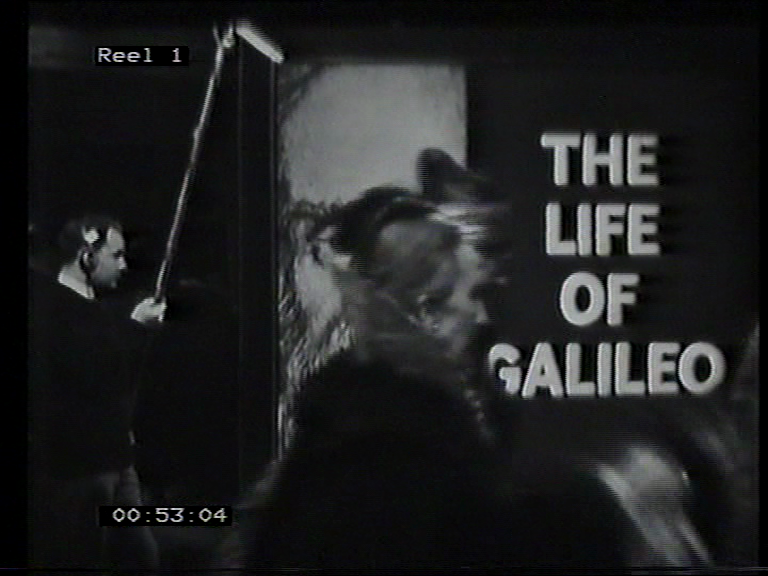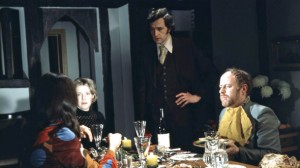 In the process of thinking through how Morse’s domestic space is presented across the course of four series, I have been struck by particular consistencies of how Inspector Morse is presented in his home, specifically the number of times he appears in his pyjamas and dressing gown. As I suggested in the CST blog, during the course of the series run (ITV, 1987-1993) the space of Morse’s sitting room becomes the site of both work and relaxation. Moreover, the prominence of experiencing his home as a lived-in space – seeing Morse at home discussing a case with Lewis or not working and enjoying his domestic space – works to define the character (doing the crossword, drinking beer and listening to opera) and at the same time seems unusual for a programme where some of the generic tensions between work and relationships are not present. In this context, the decision to present Morse in his pyjamas is not only a striking one for the way it contributes to character development, but also for how it speaks to the ways in which the qualities of a particular space might be communicated and nuanced through costuming.
In the process of thinking through how Morse’s domestic space is presented across the course of four series, I have been struck by particular consistencies of how Inspector Morse is presented in his home, specifically the number of times he appears in his pyjamas and dressing gown. As I suggested in the CST blog, during the course of the series run (ITV, 1987-1993) the space of Morse’s sitting room becomes the site of both work and relaxation. Moreover, the prominence of experiencing his home as a lived-in space – seeing Morse at home discussing a case with Lewis or not working and enjoying his domestic space – works to define the character (doing the crossword, drinking beer and listening to opera) and at the same time seems unusual for a programme where some of the generic tensions between work and relationships are not present. In this context, the decision to present Morse in his pyjamas is not only a striking one for the way it contributes to character development, but also for how it speaks to the ways in which the qualities of a particular space might be communicated and nuanced through costuming.
Categories
Links to archive TV blogs:
Recent Comments
- Stephen Clayton on Roger Marshall interview Part II: ‘Missing From Home’ (1984) and Douglas Camfield
- Colin birch on Roger Marshall interview Part I: ‘Public Eye’
- Ken Key on Recording ‘Public Eye’ (ABC) on location in Birmingham (1966)
- Claire C on ‘Dead of Night: The Exorcism’ (BBC, 1972)
- Robert Milner on ‘Dead of Night: The Exorcism’ (BBC, 1972)
-
Recent Posts
- Costume and space: Inspector Morse in his pyjamas
- Landscape in the Studio: Play for Today: Desert of Lies (BBC, 13/3/84)
- The Stripped-Down Studio Space: Play for Today: Psy-Warriors (BBC, 12/5/81) & Centre Play: The Saliva Milkshake (BBC, 6/1/75)
- Mixing Genres in the Studio: Playhouse: The Journal of Bridget Hitler (BBC2, 6/2/81)
- Studio trickery: Censored Scenes From King Kong (BBC, 1973) & Play For Today: The After Dinner Joke (BBC, 14/02/78)











